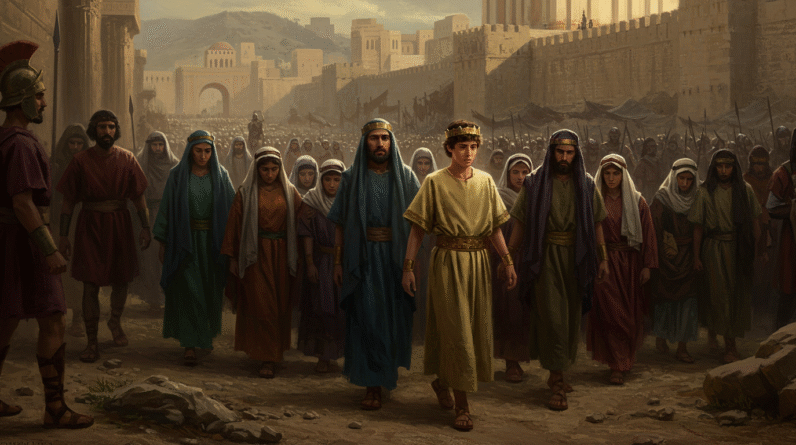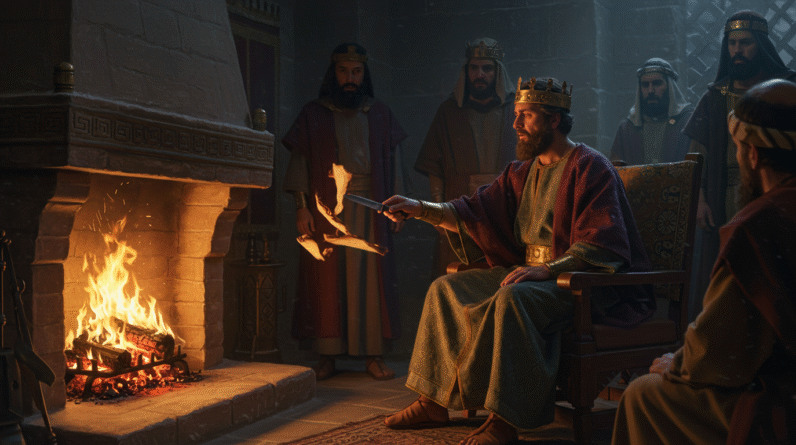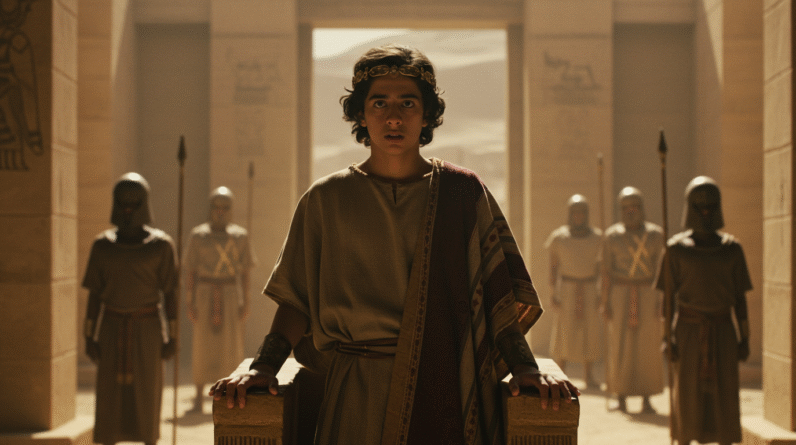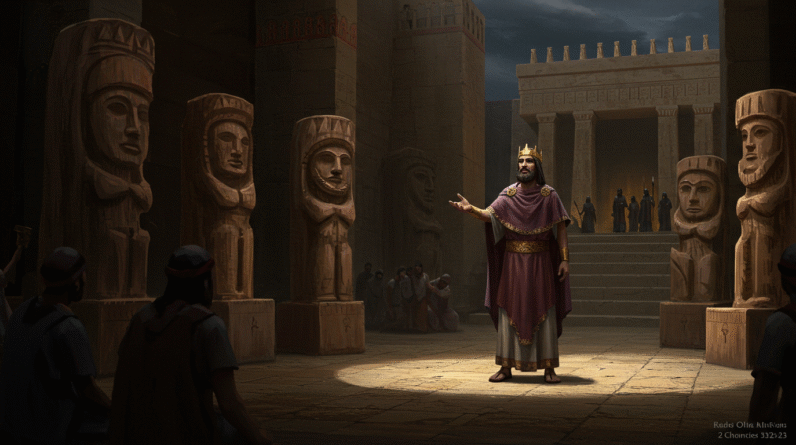Amaziah: Obedience Mixed With Pride (2 Kings 14:3–4)
You come to Amaziah with a small, slightly impatient curiosity. He is one of those biblical figures who looks straightforward at first—he does what is right, then, almost immediately, he does not. The snapshot the Bible gives you is crisp. It says that Amaziah “did what was right in the eyes of the Lord,” and then it follows that with the detail that he did not remove the high places, and that he followed the ways of his father. You can read that compact judgment here: 2 Kings 14:3–4. It’s the kind of sentence that invites you to sit with the discomfort of a mixed verdict—praise and censure in the same breath—and to think about how often your own commitments are similarly compromised.
A brief historical snapshot
You should situate Amaziah in his historical place because context shapes curiosity. He ruled Judah in the ninth century BCE, after Uzziah and before Azariah (also called Uzziah). For the fuller, more narrative-rich account of his reign—the campaigns, the manipulations, the defeats—turn to the Chronicles, which gives you a longer and sometimes more intimate version of what happened. Read the chapter that contains the longer story here: 2 Chronicles 25. Chronicles is helpful because it frames Amaziah’s life as a theological case study: obedience that is incomplete and the way that incompleteness leads to moral and national trouble.
What the text actually says
You want the plain text because it’s decisive. The author writes: Amaziah “did what was right in the eyes of the Lord, but not like David his father; he did everything as his father had done.” And then: “As soon as the kingdom was firmly in his grasp, he executed the officials who had murdered his father, the king.” There’s triumph in that—justice of a kind—but then a hitch: he pays homage to other gods and does not fully abolish idolatrous worship sites. You can read this precise verdict in the same passage: 2 Kings 14:3–4. The text is spare. Your mind fills in the rest.
The obedience that is praiseworthy
When the scripture says Amaziah “did what was right,” don’t rush past that. It matters. There are moments when you act rightly, decisively, and with conviction—when you avenge the murdered, when you enforce the law, when you make choices that align with what you know to be good. Chronicles makes a point of showing these acts. Amaziah mustered the troops, organized, he returned justice for his father. In the raw human economy of leadership, those are things you respect. They show that obedience isn’t some abstract quality; it’s embodied in administrative choices, in the courage to do unpleasant but necessary things, and in the commitment to justice.
The small compromises that corrode
And then you see the small things that look like nothing: the high places still stand, the local shrines are left alone, a foreign god remains unchallenged in the margin. That is the crux of the matter: you can be obedient in large measures and still leave the doorway open to what will undo you. The Chronicles narrative tells you not only that Amaziah left the high places but also that he hired or trusted in foreign troops and in the counsel of questionable prophets—moves that begin in pragmatic calculations and end in spiritual compromise. See the more extended account here: 2 Chronicles 25:14-16. The important thing is that these compromises are small at first. You understand them. You excuse them. You allow them. They are, secretly, the beginning of the end.
Pride is a dangerous sequel to success
You should notice the almost predictable pattern: victory, then pride; obedience, then arrogance. After a successful campaign against Edom, Amaziah’s sense of himself inflates. He is tempted into public posturing—into testing or provoking a neighbor he should not. Chronicles tells you how this pride leads him to challenge Jehoash of Israel, to demand that Israel’s troops withdraw, and then to mock and goad when that demand isn’t met. The narrative arc here is common in human lives: success feels like vindication, and vindication quickly becomes a license. The relevant narrative where this pride catalyzes disaster is recorded here: 2 Chronicles 25. The Bible’s theological economy often pairs triumph with humility and decline with pride as teaching moments for you.

A public figure with private failures
Amaziah’s story is intimate because it shows how public actions emerge from private dispositions. You can think about your own life: the choices you make in private—what you tolerate, what you fail to correct—are what later make the headlines. Amaziah’s failure to remove the high places—an apparently private religious failure—anticipates his public humiliation when he is defeated by Israel and when Jerusalem’s wall is broken down. You can read his downfall, in narrative terms, in Chronicles: 2 Chronicles 25:17-24. The chain of causes is obvious and chilling: private compromise shapes public catastrophe.
The role of advisers and prophets
You’ll notice that Amaziah consults others. That’s normal; you do it, too. But who you listen to matters. There’s a scene where a prophet confronts Amaziah and warns him not to go because God is with Israel, not Judah, in this matter. Rather than heed this prophetic voice, Amaziah pays it to remain silent, threatens the prophet, and continues. You can read this exchange in 2 Chronicles 25:14-16. This is an important lesson: consultation without submission is folly. You can sign off on a plan only to realize later that you paid for the advice you didn’t take. The mix of money, fear, and ego—where you silence the inconvenient truth because it costs you—shows how moral failure often begins with a small mischoice about whose voice you prioritize.
The stubbornness of religious form
Amaziah’s failure is not that he stops believing. It’s that his religion becomes formulaic. He continues to perform cultic duties. He offers a sacrifice. He maintains some relationship with the Lord. Yet he leaves the high places; he allows other objects of worship to exist in the national cold spots. It’s a pattern familiar to you: you should be wondering whether your habits have overtaken your heart. Ritual without repentance is shallow. The Bible’s complaints about high places are less about geography and more about divided loyalties—a life invested in two narratives at once. You can see that when you read 2 Kings 14:3–4 and watch how the narrative chooses to give praise and rebuke together.
The theology of mixed verdicts
It’s tempting to classify people as “good” or “bad.” The biblical text refuses to let you do that easily. Amaziah receives a mixed verdict because the author knows you’re capable of complexity: good deeds and bad ones intertwined. This theological honesty is useful because it refuses simplistic moralism. Your life, too, is likely to be a palimpsest of faith and compromise. That makes you more responsible, not less. When the text commends and condemns at once, it’s saying that moral life is a series of small decisions that accumulate. You can read again the compact, judgmental phrasing here: 2 Kings 14:3–4.
Pride’s consequences in scripture and life
Scripture repeatedly warns that pride precedes a fall. You know the well-worn proverb: “Pride goes before destruction, a haughty spirit before a fall.” See that put bluntly in Proverbs 16:18. You know also that grace opposes pride. James puts it more directly: “God opposes the proud but shows favor to the humble.” That tension—between divine opposition and human arrogance—is now a theological lens through which you can read Amaziah. See James’s injunction here: James 4:6. When you read these texts alongside Amaziah, the pattern emerges: pride is not merely a personality flaw; it is a spiritual blind spot with social and political consequences.
Where leadership and spirituality intersect
You want to know what Amaziah teaches leaders. Leaders are often measured by decisiveness and courage. Amaziah shows both qualities. But leadership is also moral formation. If you hold power and you are not vigilant about the small corruptions—favours given, compromises made—you will find that your power reshapes you. The chronicler seems particularly interested in leaders’ spiritual hygiene. It’s not enough to be effective; you must be faithful. The lesson is practical: surround yourself with truth-tellers, cultivate habits of repentance, and don’t confuse functioning with faithfulness. The narrative of Amaziah in 2 Chronicles 25 offers you both a template and a warning.
The awkwardness of partial repentance
You’ll also notice that Amaziah’s actions after his victory are not full-throated repentance but partial attempts at rightness. He seeks to avenge his father and to re-establish order. But he won’t give up the comforts of his inherited systems. There’s a human logic to that: you keep what works and let go of what seems costly. Yet in spiritual terms, half-measures often prove more costly than radical reform because they preserve the bad patterns while pretending to reform. If you are someone who knows what needs to change, the troubling question is whether you will commit fully to that change or whether you will be tempted by the easier compromise.
The end of Amaziah’s story
His story does not conclude in some majestic repentance. Instead, he meets a violent end—assassinated after conspiracies in Jerusalem—and he is buried in the city of Judah’s kings. That conclusion reads like a sober moral: partial obedience leaves you vulnerable. If you want the exact biblical notation, it’s recorded in the latter part of the Chronicles chapter: 2 Chronicles 25:27-28. The narrative doesn’t moralize too loudly; it simply notes outcomes. You are left to glean the implications.

Why this matters to you
You might think a king from a thousand years ago has little to teach your modern life. But his story is oddly contemporary. You know what it’s like to be good in public and uncertain in private, to act with courage and then to hedge. Amaziah gives language to that tension. When you read his story, you see how spiritual ambivalence becomes political disaster on a micro scale. The everyday implications are immediate: don’t leave the small shrines in your life, whether they are habits, relationships, or compromises. Replace them rather than cover them.
Practical things you can do instead
You can treat this story as a prompt for action. Practice a few concrete habits: invite honest counsel and don’t pay it only to ignore it; make a ritual of private confession that precedes public action; set up accountability for the small compromises you are tempted to keep. The idea is not legalistic perfection but an attentiveness to the small choices that lead to larger ones. If you want modest practical steps, begin by naming one “high place” in your life and committing, for 30 days, to a counter-practice—say, prayer, confession, or deliberate generosity—to test whether your allegiance is whole.
Reflection prompts to take with you
You could use Amaziah as a mirror. Ask yourself: where are you partially obedient? Where do you leave small idols standing because they are convenient? Whom do you consult, and whom do you silence, because the truth is costly? These questions are less about guilt and more about clarity. They invite you to notice the architecture of your loyalties.
Comparing Amaziah with other kings
It helps to compare: Amaziah is not unique. Other kings of Judah, like Asa and Jehoshaphat, exhibit similar patterns—good reforms followed by regressions into trust in foreign alliances or prideful actions. These comparisons help you see the pattern as systemic rather than merely personal. The biblical historians craft these stories to teach you that spiritual laxity breeds political and personal instability. That’s why they keep returning to the motif of “did what was right, but not wholly.” You can see it again if you glance through the Deuteronomistic history of Israel and Judah.
A final theological nuance: grace meets judgment
You must hold two truths: God’s grace is present even with Amaziah’s partial obedience, and judgment follows unrepentant pride. These are not contradictory in the Bible’s moral imagination. Instead, they teach you that mercy is real, but so is moral accountability. God’s patience is not permission but a summons to repent. If you read Proverbs and James alongside the narrative of Amaziah—Proverbs 16:18 and James 4:6—you sense the consistent moral voice: humility opens you to grace; pride hardens you to correction.
Concluding reflection
You are left with a small, stubborn question: will you be Amaziah? The question isn’t whether you will do good things; it’s whether you will be attentive to the small compromises that sully what you do. It is a story of mixed verdicts because it reflects how most human lives are lived—good intentions entangled with half-hearted faith. The lesson isn’t despair. It’s an urgency. You are invited to be more rigorous in the small places so that your triumphs don’t become the seeds of your ruin.
Explore More
For further reading and encouragement, check out these posts:
👉 7 Bible Verses About Faith in Hard Times
👉 Job’s Faith: What We Can Learn From His Trials
👉 How To Trust God When Everything Falls Apart
👉 Why God Allows Suffering – A Biblical Perspective
👉 Faith Over Fear: How To Stand Strong In Uncertain Seasons
👉 How To Encourage Someone Struggling With Their Faith
👉 5 Prayers for Strength When You’re Feeling Weak

📘 Jesus and the Woman Caught in Adultery – Grace and Mercy Over Judgement
A powerful retelling of John 8:1-11. This book brings to life the depth of forgiveness, mercy, and God’s unwavering love.
👉 Check it now on Amazon
As a ClickBank Affiliate, I earn from qualifying purchases.
Acknowledgment: All Bible verses referenced in this article were accessed via Bible Gateway (or Bible Hub).
“Want to explore more? Check out our latest post on Why Jesus? and discover the life-changing truth of the Gospel!”








